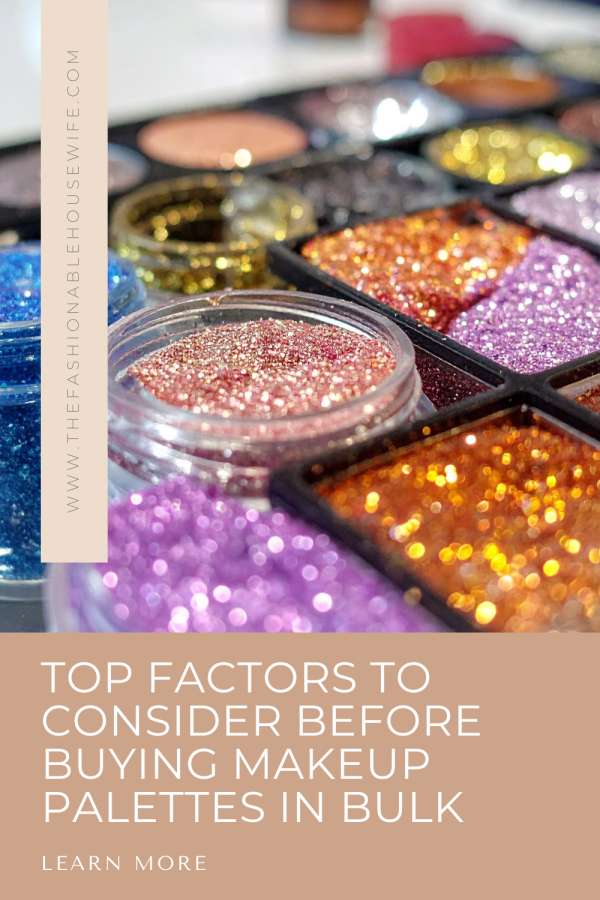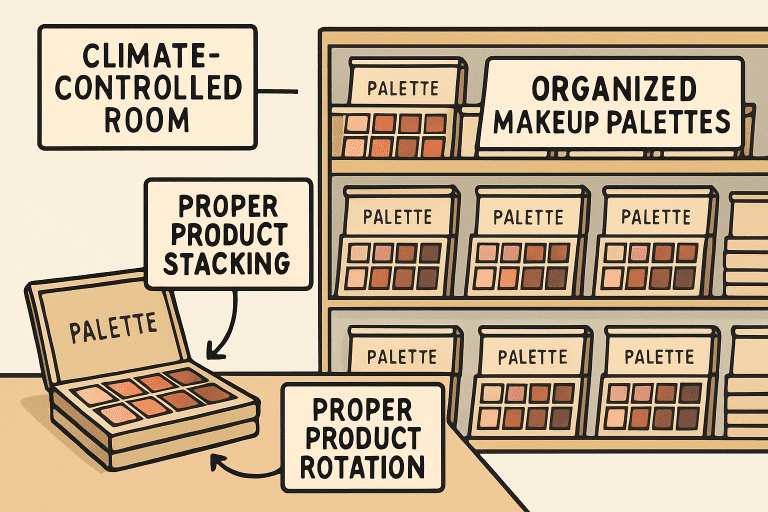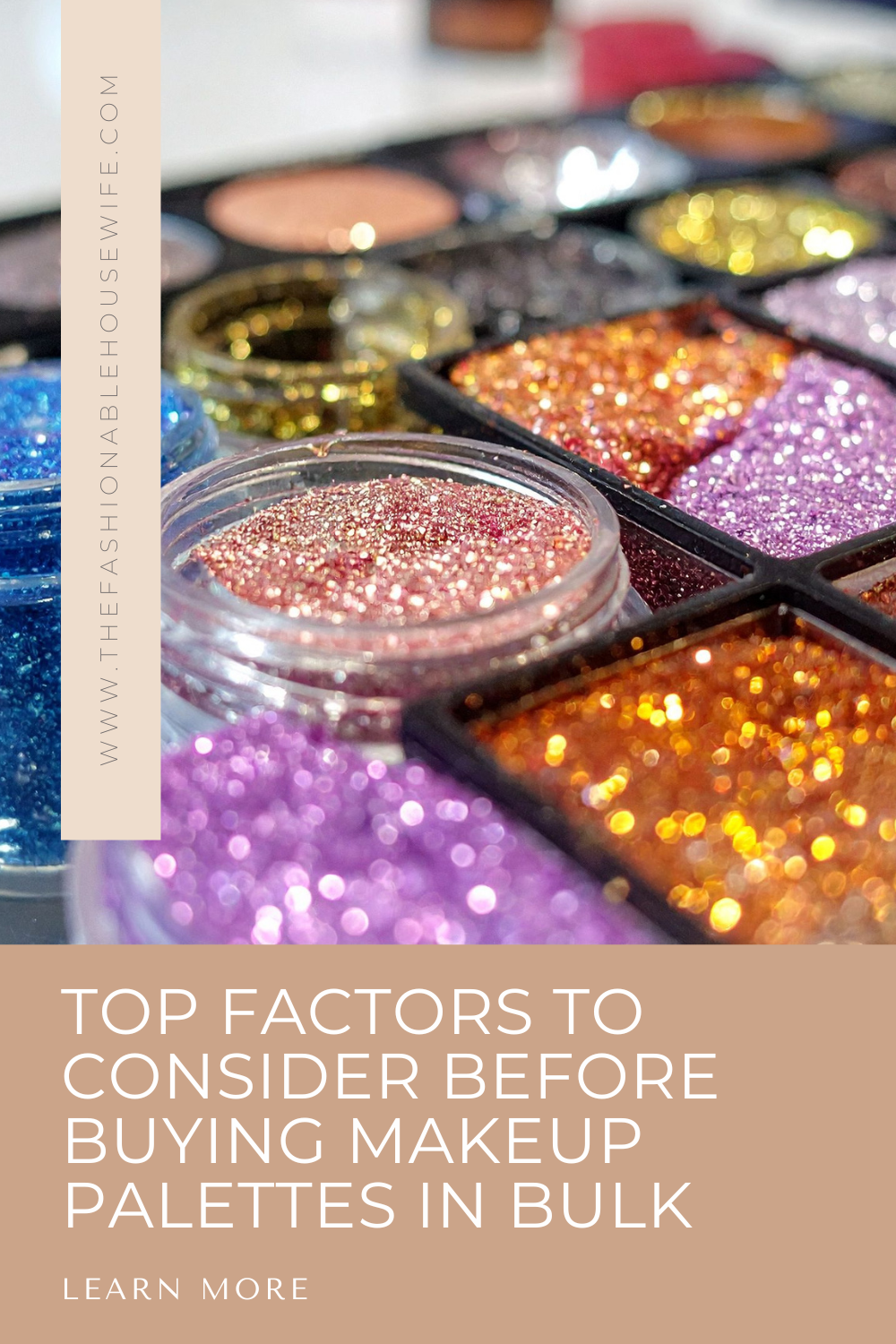Top Factors to Consider Before Buying Makeup Palettes in Bulk

Key Takeaways:
- Buying makeup palette in bulk offer excellent profit potential, supported by thorough quality, supplier, and compliance checks.
- Trends like sustainability, inclusivity, and high-performance formulations drive modern consumer preferences.
- Reliable supplier partnerships and smart inventory management help minimize risks and maintain product integrity.
Buying makeup palettes in bulk can be a transformative decision for cosmetics retailers, beauty businesses, and professional MUAs seeking to expand their offerings and maximize margins. However, to truly benefit from bulk purchasing, looking beyond price alone is crucial. Assessing quality, market fit, supplier reliability, and regulatory compliance ensures you aren’t left with unsellable stock or dissatisfied customers. Taking a strategic approach for businesses exploring wholesale makeup palettes builds a stronger brand and a lasting customer base.
Not all palettes are created equal, and making a solid upfront investment in research and due diligence pays off in the long run. Consider factors such as current beauty trends, consumers’ growing preference for eco-friendly packaging, and the importance of working with credible suppliers. Balancing these priorities with financial planning and inventory management can make the difference between a thriving cosmetics operation and a costly misstep.
Assess Product Quality and Formulation
The reputation of your business depends heavily on the products you sell. High-quality makeup palettes are characterized by their strong color payoff, smooth blendability, and longevity. Performing product sample tests allows you to gauge pigmentation, texture, and potential skin reactions. Reliable reviews and ingredient transparency from the supplier are additional signs you’re dealing with a reputable partner. Identifying palettes that offer consistent quality helps ensure long-term customer loyalty and minimizes the risk of returns or negative feedback. According to Allure, modern consumers value quality formulas with dermatologist-approved ingredients and minimal harsh additives.
Evaluate Supplier Credentials
Before finalizing a bulk order, verify that the manufacturer or distributor is properly licensed and accredited. Check for certifications such as ISO, GMP, or cruelty-free designations to ensure safety and legal compliance. Reputable suppliers will provide evidence of their adherence to safety and ethical manufacturing standards. Taking these steps reduces the risk of product recalls, customs delays, or legal challenges — all of which can seriously damage your brand.
Consider Packaging and Sustainability
Consumers are more conscious than ever about the environmental impact of their purchases. Opt for palettes with recyclable, biodegradable, or refillable packaging. Brands with sustainable practices appeal to eco-minded shoppers and strengthen their public image. Inventorying products with minimal plastic or excess wrapping can add a valuable selling point that distinguishes your business in a crowded marketplace. As noted in Ulta Beauty, sustainable packaging has become a cornerstone of many leading beauty brands’ success stories.
Analyze Market Trends and Consumer Preferences
Monitor top-performing palettes on social media, beauty blogs, and retail analytics reports. Versatility is increasingly in demand—palettes that feature a range of shades and finishes for different skin tones and occasions tend to have higher sell-through rates. Being responsive to seasonal collections, influencer collaborations, and viral color stories enables businesses to pivot quickly and meet evolving customer tastes. This adaptability can increase turnover and minimize unsold stock.
Calculate Cost and Profit Margins
Bulk orders should allow for pricing flexibility while maintaining a strong product standard. While discounts from large orders can improve your margins, it’s critical not to sacrifice essential features that drive repeat sales, such as packaging quality or formula integrity. To establish an accurate pricing strategy, perform a thorough breakdown of each palette’s true cost, including shipping, storage, and anticipated shrinkage. This approach helps balance value for the end consumer with profitability for your business.
Plan for Storage and Inventory Management
The shelf life and storage requirements of cosmetics directly affect profitability. Palettes stored in unsuitable conditions may degrade, leading to spoilage, which increases waste and cuts into your profit margin. Invest in climate-controlled inventory solutions, and only order quantities you can realistically sell before expiration. Develop a stock rotation policy that ensures older palettes are promoted or discounted first, minimizing losses from expired goods.

Understand Legal and Regulatory Compliance
Different markets have unique requirements regarding labeling, ingredient disclosure, and prohibited substances. Ensure all wholesale products like makeup palettes meet the standards in your area. This step includes confirming batch codes for traceability, clear expiration dates, and evidence of ingredient safety reports. Non-compliance threatens consumer health and can lead to significant legal liabilities and the erosion of your brand reputation.
Evaluate Customer Support and Return Policies
Reliable, responsive supplier support is invaluable. Choose partners who offer clear points of contact, quick resolutions to problems, and defined return or exchange policies. These services simplify logistics and protect your business investment if you receive damaged, unsatisfactory, or not as described products. Transparent terms also reassure your customers, building a reputation for trustworthiness and customer care.
Final Thoughts
Purchasing makeup palettes in bulk is a powerful strategy for driving growth and boosting your bottom line. Cosmetic businesses can confidently build a robust, customer-centric product lineup by prioritizing quality, market fit, responsible sourcing, and legal compliance. Thoughtful due diligence minimizes risk and paves the way for sustained success in an increasingly competitive industry.

